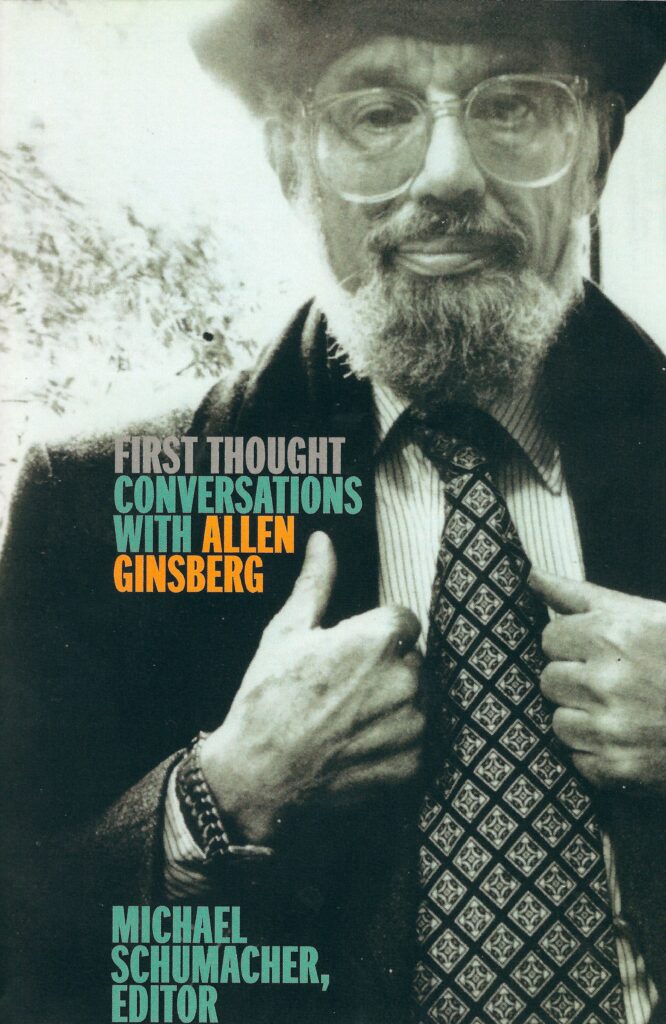First Thought: Conversations with Allen Ginsberg
Edited by Michael Schumacher
When it comes to interviews with Ginsberg, I prefer the larger and deeper Spontaneous Mind, which warrants a complete rereading.
But then I come across passages in First Thought like these four, and I breathe: Ah, Om, Ah—
I try and treat them with a kind of Buddhist gentility, gentleness, even if I feel that they’re neurotic or incompetent. I try not to pin them wriggling to the wall, but try and help ‘em get out of that space, or make their situation workable rather than challenging them. Trying to enrich them rather than challenge them. 182
[To the boomer generation] Don’t get intimidated, read great literature, learn to meditate in order to become conscious of their own minds and purify their own aggression, realizing that any gesture your are in anger creates more anger. Any gesture you take in equanimity creates equanimity. Make peace with yourself and see what you can do a to relieve the sufferings of others. That’s the main compass. 226
Do you feel hopeful? AG: I don’t think hope or fear are important. I think they main thing is a continuous generous activity, exuberant activity, no matter what’s happening. Even if the ship is sinking, you can relieve suffering in any situation. Death is not—well okay, my meditation teacher Chogyam Trungpa Rinpoche, visited William Burroughs’s son when he was waiting for a liver transplant. He was not sure he’d survive and he said to the young man, “You will live or you will die, both are good.” That’s my attitude. Both are good. That attitude of a little non-attachment and, at the same time, compassion and affection are sufficient. 227
What can poetry accomplish? Poetry is an individual thing that gets around by word of mouth. It’s an oral tradition, as well as a written, printed tradition, as well as a spoken tradition. So it’ll get around. Anything really good will get around. 250
